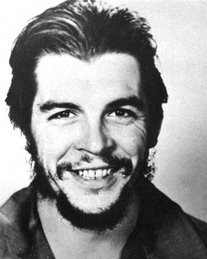LE MONDE DIPLOMATIC
The world rediscovers Cuban medical internationalism
by Helen
Yaffe, 30 March 2020
Read also
Hernando Calvo Ospina, “Cuba
exports health”, Le Monde diplomatique,
August 2006.Then, on 21 March a 53-strong Cuban medical brigade arrived in
Lombardy, Italy, at that time the epicentre of the pandemic, to assist local
healthcare authorities. While images spilled out over social media, little was
said in mainstream outlets. The medics were members of Cuba’s Henry Reeve
Contingent, which received a World Health Organisation (WHO) Public Health
Prize in 2017 in recognition for providing free emergency medical aid. In
addition to Italy, Cuba sent medical specialists to 37 of the 59 countries in
which their healthcare workers were already operating, to treat Covid-19 cases.
This is not the
first time that Cuba’s global health leadership has taken the world by
surprise. In 2014, during the Ebola outbreak in West Africa when the WHO called
for ‘compassionate doctors and nurses, who will know how to comfort patients
despite the barriers of wearing PPE [personal protective equipment] and working
under very demanding conditions’, Cuba was first to respond and sent the
largest medical contingent. Jorge Pérez Ávila, then Director of Havana’s
hospital of tropical diseases (IPK), told me that over 10,000 Cuban medical
professionals volunteered for the mission. From these, a group of 256 were
selected; all of whom had previously faced natural disasters and disease
outbreaks in developing countries. They went to Guinea, Sierra Leone and
Liberia, countries where Cuban medical missions already operated, and quickly
reduced their patients’ morality rate from 50% to 20%, introducing an education
programme to prevent the disease spreading.
ELAM was soon
enrolling students from around the world, including the United States. By 2019,
29,000 doctors from 105 countries had graduated. Half of them were young women,
75% the children of (agricultural) workers, representing 100 ethnic groups. In
2009, then-WHO director, Dr Chan, declared: ‘For once, if you are poor, female,
or from an indigenous population, you have a distinct advantage [in admission].
This is an institutional ethic that makes this medical school unique.’ (4)
In January 2010,
a catastrophic earthquake hit Haiti, killing 230,000 people and leaving 15% of
the population homeless. The Henry Reeve Contingent arrived within 24 hours,
joining the 344 Cuban medical professionals already working in Haiti, alongside
hundreds of Haitian physicians trained in Cuba. Cuba-Haiti medical cooperation
had been initiated 11 years earlier following Hurricane Georges in 1998. By 1
April 2010, another 748 Cubans had arrived, along with 481 Haitian graduates
from ELAM and 278 ELAM graduates from 28 other countries. To compound Haiti’s
woes, in October 2010 an outbreak of cholera began, introduced via UN
peacekeepers and spread due to the unsanitary conditions in temporary camps
lacking safe drinking water or sewage facilities. The Cubans established
cholera treatment centres and oral rehydration posts, set up tent-by-tent
examinations and launched a public health campaign.

